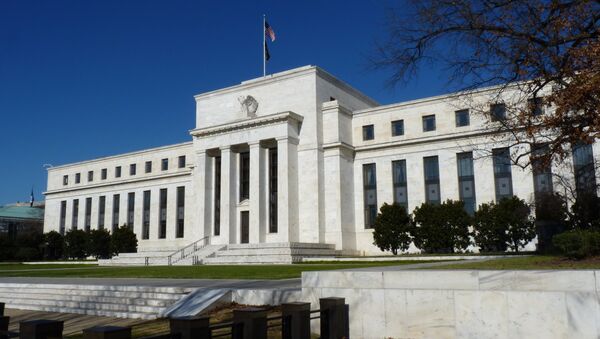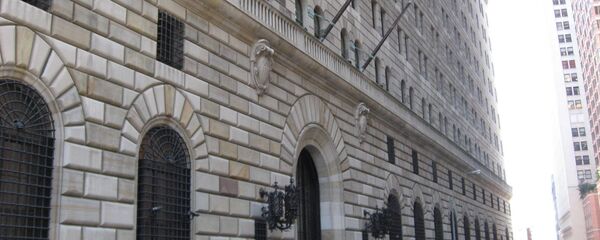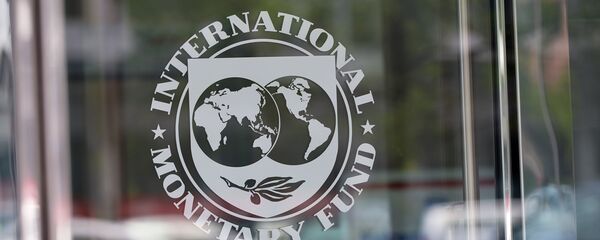Whilst the former are more inclined to deliver a slightly more hawkish message on monetary policy, perhaps hinting at rate hike this year due to the recent macro data perceived as "optimistic," the latter will affect the international trade in safe haven assets, most prominently, bonds and precious metals.
Whilst the US central banks will most certainly hold interest rates on hold at the upcoming meeting, market participants will look at the Fed message released after the two-day meeting, seeking for clues at further policy developments. US domestic lending has been expanding aggressively amid the still loose monetary conditions, resulting in the financial cycle going ahead of the real economy cycle.
The rapid gains on Wall Street throughout most of last year and in the recent months have pushed US household wealth in stock and mutual funds to $20.6 trln compared to only a half of that in 2009. As ex-St. Louis Fed economists Daniel Thornton and Joe Carson noted, the record accumulation of this virtual money accounted for 640.4 percent of disposable personal income, a level comparable to that of 648.3 percent in 2006, at the height of the subprime mortgage bubble.
Therefore, the neo-Keynesian approach of the US monetary authorities has created a hazard of a potential burst in the financial asset bubble, as there is too much money accumulated in the sector of economy which is not directly related to the production and exchange in material goods.
Is it the time for the Fed to hike rates, despite still sluggish inflation and underperforming broader growth? That really depends on the developments in real economy, not particularly impressive at the end of the current business cycle. Further hikes in rates might see the US economy sliding into deflation, yet, according to other observations and economic history, recessions are impossible to avoid, one could only postpone them.
"July saw manufacturers battle against a strong dollar, the ongoing energy sector downturn and political uncertainty ahead of the presidential election, yet still achieved the best growth seen since last year," Chris Williamson of Markit Economics commented to the recent uptick in Purchasing Managers' Index.
It is unknown yet, however, whether there is a possibility of a sustained economic expansion in the near-to-mid-term.
"Nobody knows what's going to happen,'' Thornton said.
Such considerations render the Fed dovish, thus fueling the currently record-breaking demand for haven assets, including the Treasury notes. Yet, this market segment is exposed to spillovers stemming from the policy decisions of Bank of Japan (BOJ). Japan is one of the world's biggest holders of the US debt, whilst the Japanese government itself is heavily indebted, with a debt-to-GDP ratio standing near 400 percent.
"Concerns about Brexit fallout on the real economy and financial markets have driven investors to bet on BOJ easing this month," Naomi Muguruma of Mitsubishi UFJ Morgan Stanley Securities said. "Therefore if the BOJ stands pat this month, that would disappoint the markets, prompting a fall in stock prices and a rise in the yen."
BOJ could cut its base interest rates to —0.2 percent from the current —0.1 percent, implemented in January-February this year. Coupled with the yet unknown Brexit effects on the UK (positive of negative), and the world economy (rather negative), any improvements in global pace of economic expansion is very questionable.
And then we have the political volatility and concerns of global demographics, both puching the world economy closer to the Mad Max-style post-apocalyptic desolation.






